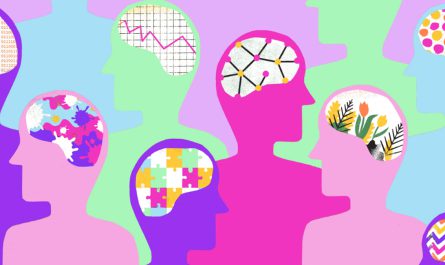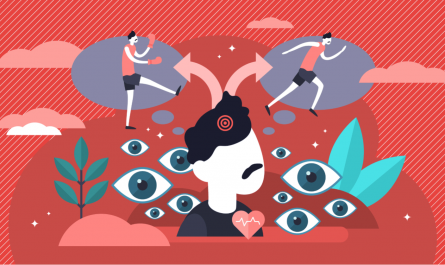A lack of understanding of mental health illness can have profound consequences for millions of children in the country. Children with mental health illnesses can be manageable as this is not a permanent problem. There are many misconceptions and myths about mental health and stigma that we need to understand.
Here are the 10 myths of mental health disorders in children.
1. Kids don’t experience mental health problems
Experts believe that most of the mental health-related symptoms can be seen before the age of 14. Having a long-term physical illness, a dispute between parents, bullying or sexual abuse, and others factors can lead to mental health problems in children.
According to the National Alliance on Mental Illness (NAMI), over 16% of US children between the ages of 6 to 17 have experienced mental health disorders. In 2016, more than 7 million people were affected by mental health illnesses.
The report says that suicide is the second leading cause of death, particularly in children (10-34 years), in the US.
2. Bad Parenting is responsible for children’s mental health
physical abuse, mental torture, neglecting, and insulting the children are not only the signs of ‘bad parenting’ but also dangerous behavior of parents towards their children.
According to the CDC, one in 14 children below the age of 17 years were likely to have poor general health as well as a mental, emotional, and developmental disability because of their bad parenting.
Experts believe poor parenting style can affect children’s life but we cannot blame parents for children’s mental health illnesses.
3. Kids with mental health disorders are violent
Children with mental health problems can be aggressive but they don’t usually attack others. They can harm themselves more than others. Experts say that violent behavior in children is not a symptom of mental health problems.
According to an article published on the US health government site, this is untrue that people with mental health disorders are violent. In fact, most violent incidents occur when people are not suffering from any mental health problems. The data shows that only 3% to 5% of people with serious mental health disorders commit violence.
4. Therapy is a waste of time for kids
A lot of people are looking at pills to tackle children’s mental health issues, but experts suggest that therapy is the best way to recover from it. Symptoms with ADHD, anxiety, stress, behavior disorders, and depression can be cured with therapy.
According to the CDC, child behavior therapy works well for— ADHD, and disruptive behavior disorders, while cognitive-behavior therapy works well for—disruptive behavior disorder, depression, anxiety, and PTSD.
5. Mental illness is a sign of personal weakness
Poor health and mental health illnesses are not correlated. Mental health problems are very frequently caused by genetic, biological, family problems, overthinking, mood swings, and behavioral change. This is neither a stigma nor a result of someone’s fault.
| Warning Signs Of Mental Health Illness In Children · Persistent sadness — two or more weeks · Withdrawing from or avoiding social interactions · Hurting oneself or talking about hurting oneself · Talking about death or suicide · Outbursts or extreme irritability · Out-of-control behavior that can be harmful · Drastic changes in mood, behavior, or personality · Changes in eating habits · Loss of weight · Difficulty sleeping · Frequent headaches or stomachaches · Difficulty concentrating · Changes in academic performance · Avoiding or missing school Source: The Mayo Clinic |
6. A child can manage a psychiatric disorder through willpower
Experts say that no child can tackle their mental health disorders—anxiety, depression, or ADHD by themselves due to lack of experience and skills. Parents and mental health experts can play a significant role to bring their children out from the trauma.
7. Stress causes mental health illness:
Stress might be a reason for mental health illness in children but this is not entirely true. Stress may occasionally trigger an episode or cause symptoms such as anxiety or depression, but persistent symptoms appear to be biological. There are probably many things that can contribute to mental illness—the cause is not yet fully understood.
8. Mental health disorder is rare
Anxiety and depression are as common as diabetes and heart disease. Millions of American children have experienced a severe episode of mental health illness due to school closure caused by Coronavirus. Disorders like schizophrenia occur in less than 1% of children, while mental health problems are more common.
9. Children with mental health disorders lack intelligence
Children with mental conditions may indeed perform badly in academics but it does not mean they are less intelligent than their peers. Experts believe that mental health illness can affect the behavior of children and their daily routine. However, it does not affect the ability of thinking and logical choices.
10. Children with Mental health disorders can’t be cured
Health experts often categorically dismiss this logic— there is no hope of recovery for those with mental health conditions. Children and even adults can recover from a mental health trauma and they can get back to their normal life. Experts suggest that therapy, yoga, meditation, and even medical treatment can play a significant role in bringing children back to their normal life.




